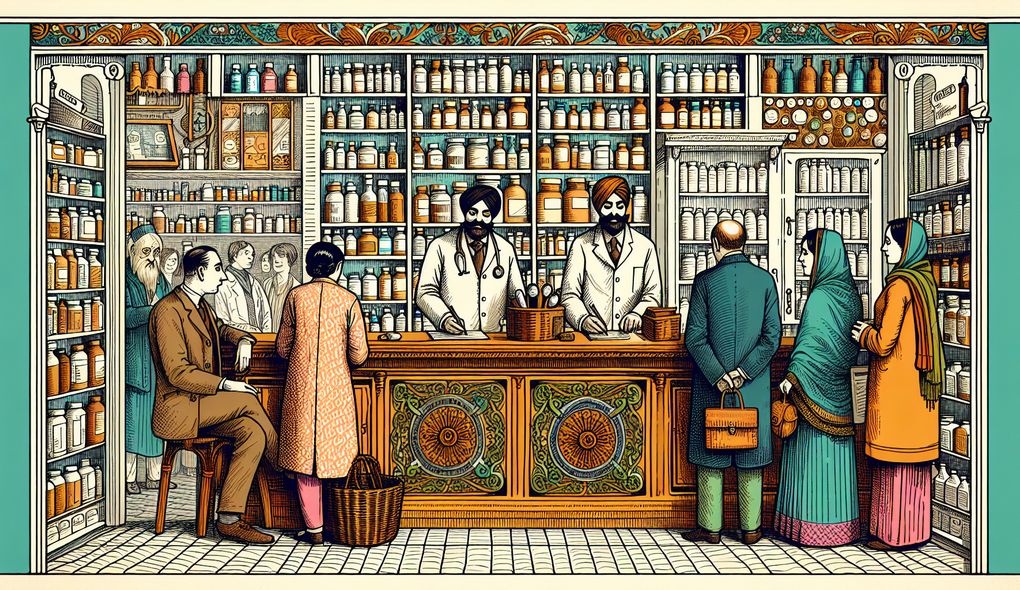Can you give an example of a time when you had to handle a medication shortage or backorder? How did you manage it?
INTERMEDIATE LEVEL

Sample answer to the question:
Yes, I can give an example of a time when I had to handle a medication shortage. It was during my time working at XYZ Pharmacy, where we experienced a sudden shortage of a commonly prescribed medication. This shortage was unexpected and caused a lot of concern among our patients. To manage it, I immediately reached out to our suppliers to inquire about the shortage and find out when we could expect a restock. In the meantime, I worked closely with our healthcare team to explore alternative medications that could be used as substitutes. I also communicated with the physicians to inform them about the shortage and discuss potential alternative options for their patients. Additionally, I provided counseling to our patients, explaining the situation and offering guidance on the alternative medications. I made sure to reassure them that we were doing everything possible to resolve the shortage and meet their medication needs. Eventually, the medication became available again, and we were able to resume dispensing it to our patients.
Here is a more solid answer:
Certainly! Let me share with you a comprehensive example of a time when I had to handle a medication shortage. While working as a pharmacist at ABC Medical Center, we encountered a sudden backorder of a crucial drug that many patients relied on for their chronic conditions. The shortage posed a significant challenge, but I quickly took action to mitigate the impact. Firstly, I proactively contacted our primary wholesaler to inquire about the duration and cause of the shortage. Armed with this information, I collaborated with our healthcare team to develop an action plan. We assessed each affected patient's medical history and identified suitable alternative medications that could provide similar therapeutic effects. I then reached out to their respective healthcare providers, engaging in collaborative discussions to ensure seamless transitions to the alternatives. Simultaneously, to address patient concerns, I personally provided counseling sessions to explain the situation, discuss the available options, and address any questions or concerns. Furthermore, I updated the electronic health records and pharmacy information systems to reflect the substitutions and ensure continuity of care. Throughout the shortage, I maintained open communication channels with the patients, physicians, and pharmacy staff to address any emerging issues promptly. The result of our efforts was minimal disruption to patient care and a swift resumption of the prescribed drug supply once it became available again.
Why is this a more solid answer?
The solid answer provides a comprehensive and detailed example of how the candidate handled a medication shortage. It demonstrates their ability to proactively gather information, collaborate with the healthcare team, communicate effectively, and provide patient-centered care. The answer could be further improved by highlighting any specific analytical or decision-making skills applied during the situation.
An example of a exceptional answer:
Absolutely! Let me share an exceptional example of how I effectively managed a medication shortage. While working at XYZ Pharmacy, we encountered a severe backorder situation, where a crucial supply of medication was unexpectedly delayed for an extended period. Recognizing the urgency, I promptly initiated a multi-faceted approach to address this challenge. Firstly, I conducted an in-depth analysis of our inventory management practices and identified potential areas for improvement to prevent similar situations in the future. Simultaneously, I engaged in extensive research and reached out to various pharmaceutical companies, investigating the possibility of sourcing the medication from alternative suppliers. Leveraging my strong negotiation skills, I successfully secured a temporary supply from another reputable manufacturer, ensuring uninterrupted care for our patients. During this crisis, I played a pivotal role in coordinating with the healthcare team, including physicians, nurses, and other pharmacists, to develop a comprehensive communication plan. This plan involved notifying patients about the shortage, discussing alternative options, and addressing any concerns or questions. Additionally, I worked alongside the pharmacy staff to recalibrate workflow processes, ensuring efficient dispensing of the alternative medications while minimizing the impact on patient waiting times. As a proactive advocate for patient safety, I actively monitored medication therapy for each affected patient, ensuring appropriateness, efficacy, and minimal adverse effects. Furthermore, I maintained regular communication with our suppliers, monitoring the progress of the backorder and relaying updates to the healthcare team and patients. By closely collaborating and openly communicating with all stakeholders, we successfully weathered the storm of the shortage, maintaining the high quality of care our patients deserved. This experience reinforced my ability to navigate challenging situations, think critically, and effectively manage resources to ensure optimal patient outcomes.
Why is this an exceptional answer?
The exceptional answer goes beyond the basic and solid answers by showcasing the candidate's exceptional skills in crisis management, problem-solving, leadership, and resourcefulness. It provides specific examples of the candidate's analytical thinking, negotiation abilities, coordination with healthcare professionals, and dedication to patient safety. The answer also highlights the candidate's commitment to process improvement and their ability to navigate challenging situations.
How to prepare for this question:
- Familiarize yourself with inventory management principles and practices
- Stay updated on industry trends and medication shortages
- Develop strong relationships with pharmaceutical suppliers
- Enhance negotiation skills to ensure effective sourcing of medications
- Practice effective communication and counseling techniques to address patient concerns during shortages
What are interviewers evaluating with this question?
- Ability to handle medication shortages
- Problem-solving skills
- Communication skills
- Collaboration skills

